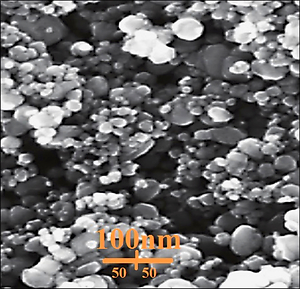Current issue
Archive
Manuscripts accepted
About the Journal
Editorial office
Editorial board
Section Editors
Abstracting and indexing
Subscription
Contact
Ethical standards and procedures
Most read articles
Instructions for authors
Article Processing Charge (APC)
Regulations of paying article processing charge (APC)
ONCOLOGY / EXPERIMENTAL RESEARCH
Green formulation and characterization of Fe nanoparticles containing Calendula extract and investigation of the antioxidant, cytotoxic and anti-human cholangiocarcinoma properties
1
School of Clinical Medicine, Hebei University, Baoding, Hebei Province, China
2
Clinical Laboratory, The Affiliated Hospital of Hebei University, Baoding, Hebei Province, China
3
Department of Hepatobiliary Surgery, The Affiliated Hospital of Hebei University, Baoding, Hebei Province, China
Submission date: 2021-07-29
Final revision date: 2021-11-22
Acceptance date: 2021-11-23
Online publication date: 2021-11-24
Corresponding author
Shujie Cheng
Clinical Laboratory,The Affiliated Hospital of Hebei University,Yuhua Dong Road 212,Baoding,Hebei Province,071000,P.R.China, China
Clinical Laboratory,The Affiliated Hospital of Hebei University,Yuhua Dong Road 212,Baoding,Hebei Province,071000,P.R.China, China
KEYWORDS
TOPICS
ABSTRACT
Introduction:
Among the simplest nanostructures that are widely used in industry today are metallic nanoparticles. Metallic nanoparticles can bind non-destructively to single-stranded DNA, which is important in medical diagnostics.
Material and methods:
In a recent study, the structural and morphological characterization of bio-synthesized FeNPs@Calendula arvensis was performed by FT-IR and UV-vis spectroscopy and scanning electron microscopy (SEM) in which SEM images exhibited an equal and uniform spherical morphology in size of 30.13 nm.
Results:
In the antioxidant test, the IC50 values of FeNPs@Calendula arvensis and BHT against DPPH free radicals were 117 and 88 µg/ml, respectively. In the anticancer test, the cells treated with FeNPs@Calendula arvensis were assessed by MTT assay for 48 h as regards the anti-human cholangiocarcinoma and cytotoxic properties towards normal (HUVEC) and cholangiocarcinoma carcinoma cell lines, i.e. HCM-CSHL-0174-C22, CCLP-1, and QBC939. The IC50 values of FeNPs@Calendula arvensis were 196, 237, and 278 µg/ml against HCM-CSHL-0174-C22, CCLP-1, and QBC939 cell lines, respectively. The viability of the cholangiocarcinoma cell line decreased dose-dependently in the presence of FeNPs@Calendula arvensis.
Conclusions:
It appears that the anti-human cholangiocarcinoma effect of FeNPs@Calendula arvensis is due to its antioxidant effects.
Among the simplest nanostructures that are widely used in industry today are metallic nanoparticles. Metallic nanoparticles can bind non-destructively to single-stranded DNA, which is important in medical diagnostics.
Material and methods:
In a recent study, the structural and morphological characterization of bio-synthesized FeNPs@Calendula arvensis was performed by FT-IR and UV-vis spectroscopy and scanning electron microscopy (SEM) in which SEM images exhibited an equal and uniform spherical morphology in size of 30.13 nm.
Results:
In the antioxidant test, the IC50 values of FeNPs@Calendula arvensis and BHT against DPPH free radicals were 117 and 88 µg/ml, respectively. In the anticancer test, the cells treated with FeNPs@Calendula arvensis were assessed by MTT assay for 48 h as regards the anti-human cholangiocarcinoma and cytotoxic properties towards normal (HUVEC) and cholangiocarcinoma carcinoma cell lines, i.e. HCM-CSHL-0174-C22, CCLP-1, and QBC939. The IC50 values of FeNPs@Calendula arvensis were 196, 237, and 278 µg/ml against HCM-CSHL-0174-C22, CCLP-1, and QBC939 cell lines, respectively. The viability of the cholangiocarcinoma cell line decreased dose-dependently in the presence of FeNPs@Calendula arvensis.
Conclusions:
It appears that the anti-human cholangiocarcinoma effect of FeNPs@Calendula arvensis is due to its antioxidant effects.
Share
RELATED ARTICLE
We process personal data collected when visiting the website. The function of obtaining information about users and their behavior is carried out by voluntarily entered information in forms and saving cookies in end devices. Data, including cookies, are used to provide services, improve the user experience and to analyze the traffic in accordance with the Privacy policy. Data are also collected and processed by Google Analytics tool (more).
You can change cookies settings in your browser. Restricted use of cookies in the browser configuration may affect some functionalities of the website.
You can change cookies settings in your browser. Restricted use of cookies in the browser configuration may affect some functionalities of the website.



